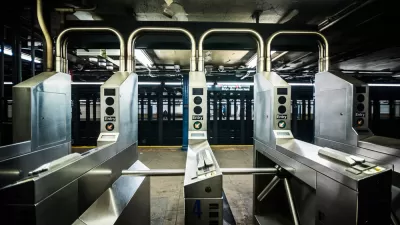Project for Public Spaces' Market Cities Initiative seeks to understand and addresses challenges faced by the public marketplaces to improve market infrastructure and promote healthy food systems in local communities.

In a partnership with Healthbridge and Slow Food, Project for Public Spaces (PPS) kicked off the Market Cities Initiative with citywide strategies in three major metropolitan areas, working remotely with stakeholders in Pittsburgh, Seattle, and Toronto to better understand the importance of sustainable public marketplaces and to support communities by way of developing localized market networks.
The PPS strategy seeks to address the many threats faced by public markets and the economies that house them. "These constant and immediate threats include increasing urban development and value of real estate; the modernization and centralization of food systems; economic development practices that neglect women, minority populations, and other small entrepreneurs; and the lack of management capacity of the markets themselves," say PPS officials.
PPS worked in February to gather data about challenges faced by public markets through a Market Cities Survey that collected initial responses from more than 60 cities worldwide. Survey participants reported a lack of communication between market managers in their area. The next step in the strategy: Inventory and map market networks and conduct online forums to connect market operators and city officials.
Given the uncertainty of U.S. markets' ability to operate in the near future, PPS will keep watch over government, police, and investor responses as they continue to move forward with the project.
FULL STORY: KICKSTARTING MARKET CITY STRATEGIES IN PITTSBURGH, SEATTLE & TORONTO

Planetizen Federal Action Tracker
A weekly monitor of how Trump’s orders and actions are impacting planners and planning in America.

Chicago’s Ghost Rails
Just beneath the surface of the modern city lie the remnants of its expansive early 20th-century streetcar system.

San Antonio and Austin are Fusing Into one Massive Megaregion
The region spanning the two central Texas cities is growing fast, posing challenges for local infrastructure and water supplies.

Since Zion's Shuttles Went Electric “The Smog is Gone”
Visitors to Zion National Park can enjoy the canyon via the nation’s first fully electric park shuttle system.

Trump Distributing DOT Safety Funds at 1/10 Rate of Biden
Funds for Safe Streets and other transportation safety and equity programs are being held up by administrative reviews and conflicts with the Trump administration’s priorities.

German Cities Subsidize Taxis for Women Amid Wave of Violence
Free or low-cost taxi rides can help women navigate cities more safely, but critics say the programs don't address the root causes of violence against women.
Urban Design for Planners 1: Software Tools
This six-course series explores essential urban design concepts using open source software and equips planners with the tools they need to participate fully in the urban design process.
Planning for Universal Design
Learn the tools for implementing Universal Design in planning regulations.
planning NEXT
Appalachian Highlands Housing Partners
Mpact (founded as Rail~Volution)
City of Camden Redevelopment Agency
City of Astoria
City of Portland
City of Laramie




























